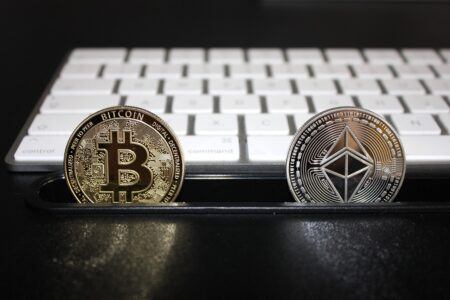American multinational tech firm, IBM, recently applied for a new blockchain-related patent – which involves preventing augmented reality (AR) game players from “intruding on undesirable locations”
Maintaining Clearly Defined Boundaries
According the patent filing, these locations include “culturally sensitive” places, “high risk” areas, and properties “marked” by their owners. As described in the patent document, the “method includes obtaining a location of a mobile device using a first sensor of the mobile device and accessing a first locational database responsive to the location of the mobile device.”
An “augmented reality object” is then retrieved from the locational database, and the blockchain-based system determines whether “the location of the mobile device” associated with the AR object is in “an undesirable location.”
IBM’s patent application further noted that its “exemplary method … includes displaying the modified augmented reality object at a display of the mobile device.”
Released by the U.S. Patent and Trademark Office (USPTO) on November 1st, the American IT firm’s patent aims to clearly define and maintain boundaries between sensitive physical locations and those operating devices with AR objects.
The patent explains that a distributed ledger technology (DLT) based system is used to keep track of information – in order to ensure transparency and prevent anyone from forging or altering records.
Guaranteeing “Trust” With Blockchain
IBM describes augmented reality in its document as a type of gaming that’s associated with a location “sometimes overlaid with an image of one or more game items” such as in-game locations, characters, and “resources.”
The game players use their mobile devices to “interact with the virtual game items that are ‘present’ at the player’s real world location … [so,] the player transits between real world locations and spends time in particular locations interacting with the game”, the patent application explained.
Importantly, the document stated that a key “aspect of a location-based augmented reality game” is “’trust’ about real world locations.” By using the blockchain-enabled system described in its patent filing, IBM aims to provide a guarantee of “trust” between location-dependent AR objects and real-world physical locations.
Only Alibaba Has Applied For More Blockchain Patents
Going on to mention potentially exploitative activities its blockchain-powered solution aims to prevent, the document noted: “Actors or users may maliciously profile a location for different purposes” such as “misleading game players by falsifying the profile of a location… Thus, it is important for the system to verify/validate any location related transaction.”
Notably, IBM has previously applied for many different blockchain-related patents. To date, the US-based technology firm has filed 89 blockchain patents.
Only China-based Alibaba has submitted more blockchain patents as it has filed 90 such applications. Meanwhile, Microsoft and Security First Corp have applied for 40 and 64 such patents, respectively (according to Blockchain Council).








